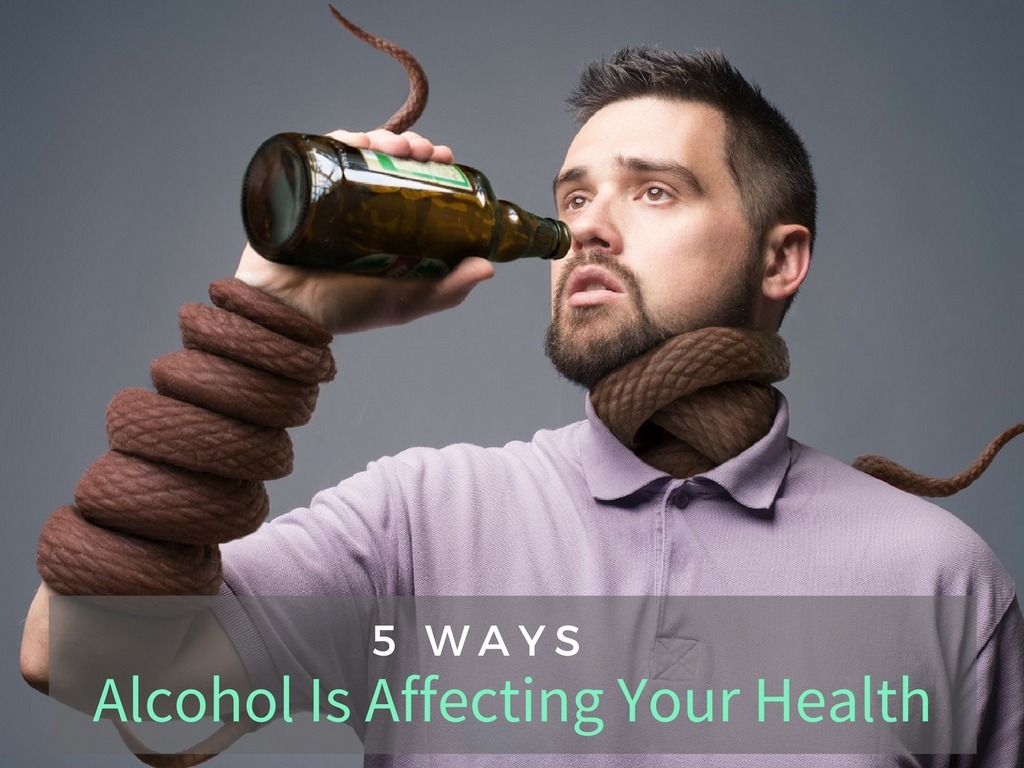
Alcohol may be part of everyday life for many people but it doesn’t come without risks. Putting aside the immediate effects of getting drunk and the nasty after effects of a painful hangover, you might be surprised by the number of negative effects alcohol can have.
When you dig deeply into the extensive research that has been done a Friday evening spent down your local bar looks less and less enticing.
Here are just five of the most serious long-term side-effects of alcohol on the body…
Cancer
We all know that smoking is a key factor in many cancers – such as those of the mouth and lungs – but what you might not realize are the many links found between alcohol and cancer.
According to experts alcohol is responsible for roughly 4% of all cancers seen. The primary cancers involved in alcohol consumption are those of the mouth, throat and food pipe. Studies suggest that even moderate drinking can increase your risk of contracting such cancers by up to 20%. Your chances of contracting bowel cancer also increases by 9%.
For the ladies, numerous studies have demonstrated the link between alcohol consumption and breast cancer. The risk seems to be directly related to the volume of alcohol consumed, with some studies suggesting that regular heavy drinking can increase your odds of contracting breast cancer by up to 12%.
Liver Disease
The liver is responsible for breaking down alcohol into a usable form. When excessive volumes of alcohol are consumed the liver can become overwhelmed trying to keep up and damage can occur.
However it’s not just the direct effects of alcohol on the liver that are of concern; secondarily it seems these damaged liver cells are also more at risk of attack by bacterial toxins, further worsening the impact of alcohol on your body.
Of course the liver isn’t solely responsible for filtering alcohol from your body; it has a much broader role with the elimination of toxins, so a damaged liver can have serious repercussions for the body.
Osteoporosis
Osteoporosis is the name given to a thinning or weakening of the bones so for obvious reasons is considered a serious condition.
It turns out that alcohol consumption can have a number of effects on the body which encourage the onset of osteoporosis. For example alcohol interferes with the balance of calcium in the body, one of the most important constituents making up bone.
Excessive alcohol can also impact hormone balance, further worsening the problem.
Worse, studies suggest that the effects of osteoporosis cannot be reversed even if you stop drinking. Therefore it’s wiser to stop drinking before the impact of alcohol on the skeleton starts to become noticeable.
Reproductive Function
Many men have experienced so-called “brewers droop” after a heavy drinking session, only for functionality to return the following day. However the science suggests that drinking alcohol could be having some far more serious effects on the reproductive system.
Firstly regular drinking can lower testosterone levels in men over prolonged periods of time, making it more difficult to achieve an erection. Just as bad, even moderate drinking has a negative effect on the male reproductive system, increasing the chances of infertility.
In ladies, drinking alcohol can affect the menstrual cycle and decrease fertility.
Heart Disease
Drinking alcohol on a regular basis can have a number of unpleasant effects on your heart according to the American Heart Foundation.
Firstly, drinking alcohol can raise the levels of certain fats in the body and, as a result, increase the blood pressure. This is turn can be reflected in a higher risk of contracting diabetes or suffering a heart attack.
Lastly according to UK charity Drink Aware heavy drinking can also weaken the heart muscle which in some cases may lead to heart failure.
Conclusion
As should be clear by now drinking alcohol isn’t a harmless vice, and even moderate amounts can have a multitude of negative effects on the body.
While quitting drink altogether may be a step too far, for individuals concerned about their health it may be wise to consider reducing the frequency and volume of alcohol consumed in order to limit the very clear risks.

Leave a Reply